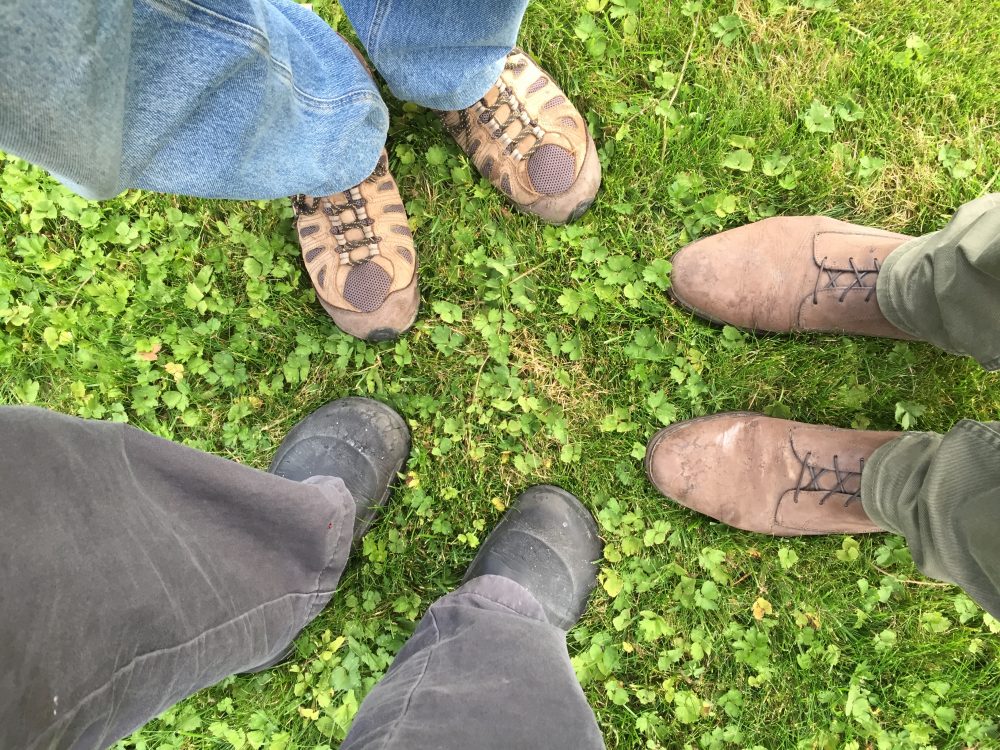In our society men face unique pressures and expectations. In Sitka, a group of men are getting together to question assumptions about masculinity, and to create their own space to share emotions.
I sat down with the Sitka Men’s Group at the beginning of one of their meetings. They take place in the dimly-lit SAIL offices in Sitka, around a thick wooden table. They gave me a little background on the group. And while they’re not unfriendly to women — which I’ll explain more about in a moment– they consider their interactions confidential. So, they didn’t want me to record even their weekly introductions.
Instead, I invited the members to meet with me one-on-one, to discuss the need for a group like this, and why they participate.
Three of them agreed.
Tom Crane, one of the founders of the Sitka’s Men’s Group says, “Men don’t seem to have a real venue for sharing a lot of stuff, anything from apprenticeship to mentorship to feelings to emotions to what’s coming up at work, anything, so it felt like this was something that was needed.”
The idea for the group sprang from a mixed gender group that was exploring the value of emotional vulnerability. Steve Hutchinson says it can be hard for men to get to that vulnerable place. “With men, there’s this sort of posturing,” he says, “almost this competitive atmosphere, in a way of making yourself look better or look good. A men’s group specifically is important because it’s with other men who have also had those messages from our larger society.”
John Stinson says that these messages are very limiting. He says, “It seems like there’s two emotions allowed for men. One is happiness and the other is anger and anger is so often a mask basically out of fear or confusion.”
I ask, “Do you have any examples of things you’ve reasoned out or worked things out in the group?”
“Yes,” he says, “a relationship that I’m in now and often I feel like I have no one else to talk to. About my own concerns.”
Beyond just sharing emotions and life issues, Stinson says that different themes emerge that the group discusses.
“For instance one week, it was values,” he says, “and that really helped me to clarify what are my values? And I can stand firm on those, and in defining those helps me to discover better who I am and how I can relate with other people.”
Crane says redefining masculinity is an essential part of being a man today. “We might turn the script of what it is to be a man, and that has changed in the last forty years, 50 years, a lot.”
The group first came together almost two years ago, and fluctuates between 3 and 7 members. The men sometimes listen to podcasts together, watch films, or read books that are relevant to their work. This gives them ideas for new definitions of masculinity. Stinson says they’ve been looking at “different ways to express a warrior spirit. For a couple of different weeks, we’ve referenced into letter from a birmingham jail from Martin Luther King Jr., and the effect that had. A man who’d been brutalized and part of a collective recipient of violent oppression and prejudice would choose nonviolence, and he did it with fierceness, with ferocity.”
The men are grateful to have a space of their own but they want to clarify that the group is not anti-women. Hutchinson says, “Especially here in Sitka, I see so many strong and amazing women. Courageous and powerful and and really like world builders and community builders.”
Besides being good for men, the group also benefits the women around them. According to Hutchinson, the group has talked about “how women often become the sole sort of emotional support for a man.”
But this group changes that dynamic. Stinson agrees. “When a man is better adjusted and balanced in his internal world, then he’s going to be softer and easier to get along with the outside as well.”
Hutchinson says that emotional support is essential for men. Not having emotional outlets can have grave ramifications. He says not having that support or that structure can be a risk factor to men perpetrating violence. That’s one of the reasons the group considers itself an important ally to feminism.
Crane agrees that this type of work could have larger societal repercussions. He asks, “What would true brotherhood look like if we weren’t competing with each other and we were cooperating instead? And what would our society at large look like if we were doing that?”
It’s hard to imagine what that would look like. But perhaps there’s a microcosm that already exists, inside the SAIL office in Sitka every Wednesday night. For those of us outside those walls, we’ll just have to wait and see.































